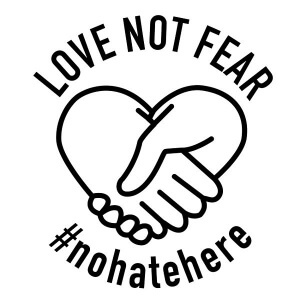What is a Hate Crime?
September 17th, 2016

Hate crimes are notoriously difficult for prosecutors to prove in court.
Oklahoma is often in the news with regards to religious matters and we have even recently discussed the state’s controversial handling of religious Christian symbolism in the form of the Ten Commandments being placed upon the Capitol’s lawn. You can read about that matter here.
Recently, a tragic story made headlines when a man who had repeatedly targeted a family, ultimately murdered his neighbor on his front porch only minutes after the police had deemed their hands tied. Khalid Jabara had called the police and requested their presence after he had become aware that the man had a gun. About 12 months prior, this same man, Vernon Majors, had run over Jabara’s mother after yelling “filthy Lebanese” at her. She was severely injured, but fortunately survived. Khalid Jabara lost his life to Majors, and while many questions remain, one is why Majors was not charged with a hate crime when he ran over Jabara’s mother.
Appropriately, he has been charged with a hate crime in the murder of Khalid Jabara.
Hate Crime Laws Vary Drastically Among States
Hate crimes can be prosecuted at the state level and the federal level. Every state is different, but in Oklahoma, a hate crime is classified as malicious harassment based on race, color, religion, ancestry, national origin and disability. It encompasses a variety of criminal acts and provides that anyone convicted of a hate crime shall be punished by no more than ten years in prison and fines of no more than $10,000.
While the punishment outlined above would be in addition to the punishment applied in the underlying criminal act of battery, murder, etc., it is fairly relaxed in relation to other states, like New York. New York hate crime laws require that the hate crime be charge itself be carry a more serious penalty than the underlying offense. Additionally, Oklahoma statutes only enumerate a handful of protected citizens whereas New York laws include gender, age, and sexual orientation.
Why are Prosecutors Reluctant to Charge Someone with a Hate Crime?
Prosecutors are often reluctant to charge a person with a hate crime because they must prove not only that person committed the violent criminal act, but also did so specifically with malicious intent at the time of the act. A racist who assaults a person of color because they accidentally rear ended his car is not necessarily guilty of a hate crime unless the prosecutor can prove that the assault would not have happened if a Caucasian person had rear ended their car instead.
These types of crimes are often referred to as “thought crimes” which is a crime designed to punish the way a person thinks. While prosecuting these so called thought crimes can be controversial, if enhanced criminal penalties dissuade violent criminal attacks based on prejudice, then are the laws not doing their job?
Hate Crimes will Continue and but will State Law Adapt?
As people continue to live in proximity to one another and have greater access to global information through the Internet, conflicts will increasingly arise. Hopefully we will also see legislation that continues to protect minorities and people of every community in the face of hate. As the law changes, Universal Life Church will remain committed to keeping you up to date.
(image courtesy of Smith390128)


